Radhika is a plant scientist by training who has taught plant science for several years, and researched and published on the behavior of plants facing various abiotic and biotic stresses. She has recently been interested in plant science outreach to schools and communicating plant science to a younger audience.
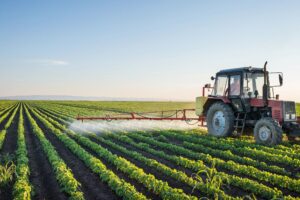
Hidden Helpers: Bacteria in Leaves
New research shows that bacteria found inside plant leaves can transfer their nitrogen and might eliminate the need for nitrogen fertilizers. By Radhika Desikan Interaction between plants and microbes—such as bacteria and fungi—is an ancient evolutionary process that is thought to have enabled the formation of land plants. Plants were ...
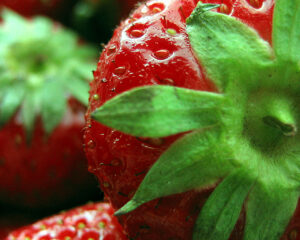
Wounding Leaves Produces Sweeter Organic Strawberries
Organic strawberry plants produce more phytochemicals to combat damage, resulting in stronger, sweeter fruits with more health benefits. By Radhika Desikan Do you like your fruit to be organically grown or conventionally grown? This has been a choice available to consumers since the first half of the 20th century in ...

Bananas, Panama Disease, and You
By Radhika Desikan Bananas are a ubiquitous fruit that generally appeals to humans of all ages, from infants to older people. But did you know that our consumption of bananas might be reduced in the future, due to a devastating disease that is hitting the crop worldwide? Panama disease of ...
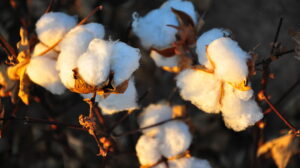
Steroid Hormones Protect Cotton from Drought
By Radhika Desikan As you are reading this, chances are that you are wearing something made of cotton, or have come in contact with some cotton fabric today. Cotton accounts for nearly half of all clothing material in the world. Cotton plants date back to prehistoric times; there is evidence ...
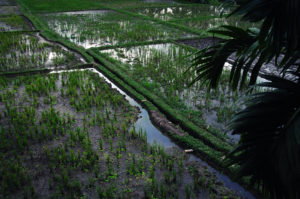
Bug Bacteria Helps Rice Plants Boost Immunity
Rice plants deliver the most widely consumed staple cereal crop for about half of the world’s human population, but cultivation comes with inherent challenges, such as herbivorous pests. By Radhika Desikan The Brown planthopper (BPH) is an insect pest that feeds on rice plants and can cause extensive damage to ...
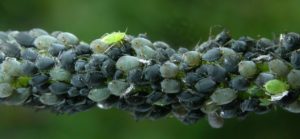
Plants Can Win a Battle against Aphids
By Radhika Desikan Being sessile, plants are faced with constant pressures from their environment, such as extreme climates, microbes, and herbivores including insects and animals. To cope with these challenges, some plants have evolved the ability to tolerate particular stresses or defend themselves against insect pests. For decades, scientists have ...
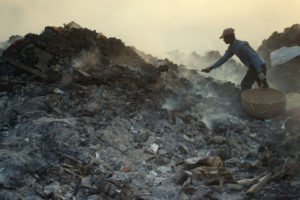
Microbes Help Plants Survive Heavy Metal Stress
By Radhika Desikan When you hear the term heavy metal, what do you think of? Music or chemistry? Exposure to heavy metal music can cause stress in some humans. But what about chemical heavy metals? Are they good or bad for the environment and living organisms? In chemical terms, heavy ...
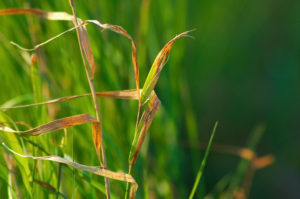
Leaf Age Matters for Plant Survival
By Radhika Desikan Does age really matter? For us humans, age seems to be a very sensitive issue relevant to how we live our lives. And while it also matters to plants, it does so at a different level. Some of our tissues, like skin, have cells that are constantly ...
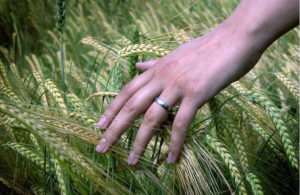
Plants Communicate with Neighbors in Response to Touch
By Radhika Desikan How well do you and your neighbour know each other? Chances are, very little these days. But some living things, including plants, know their neighbours well. According to new research, it appears that what one plant “feels” can also be sensed by its neighbouring plant. Isn’t that ...
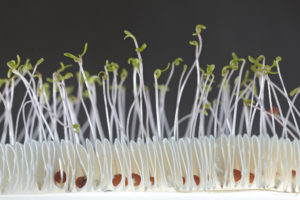
To Grow or Not to Grow? Bacteria Make Seeds Think!
By Radhika Desikan A seed is the beginning of new life for most flowering plants. It has all the potential to develop into a new plant, with its own stored food used for germination (the sprouting of a seed). However, if you have done any gardening, you might know that ...
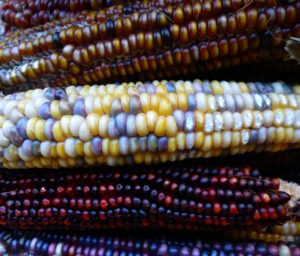
Do We Really Need Fertilizers To Grow Crops?
Plants need nitrogen, and many plants depend on fertilizers to get enough. But scientists have been growing plants without fertilizers. By Radhika Desikan We all learn that plants can make their own food via a complex process called photosynthesis. However, to make their food, and to grow properly, plants need ...

Space Farming Is More Than Just Plants
Scientists studied how plants can grow better in conditions that mimic microgravity in space, highlighting the prospects of future space farming. By Radhika Desikan When we think of humans’ exploration of space, we do not necessarily think about plants. However, humans need food (of which plants form a major part) ...
